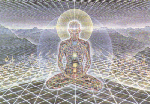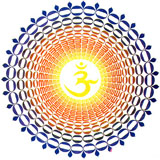WHY WE SEEK HAPPINESS?
We have spoken at length the imperativeness of constantly following the path of dharma in case we want our developmental process to go in the positive direction.
 If we seek in our own hearts a sincere answer to questions like – whether this has been easy? whether we have maintained our lives in accordance with the divine laws of righteousness?, what will be our answer? Perhaps 99.9% of us will admit that no matter how sincere we are, how devoted we have been, and how true our intentions may be, we have faltered every day. Failures and frustrations have been our constant companion.
If we seek in our own hearts a sincere answer to questions like – whether this has been easy? whether we have maintained our lives in accordance with the divine laws of righteousness?, what will be our answer? Perhaps 99.9% of us will admit that no matter how sincere we are, how devoted we have been, and how true our intentions may be, we have faltered every day. Failures and frustrations have been our constant companion.
No doubt it is and indeed has been difficult. We are not of course uniquely inadequate in this respect. In all yugas, even in the ages of Satya, dvapara or tretaya – if you believe our puranas – the same problem has goaded the mankind. Our seers have declared this path as kshurasya dhara yatha – like walking on the sharp edge of the sword.
This raises two significant questions.
Firstly, if it is so difficult and lives and lives go by without any tangible progress, why then the mankind is still running after this? What is that, which is pushing you and me still on this path millennium after millennium, birth after birth? What is the reason behind this quest?
Then the second question. If I am not prepared to abandon my goal, what can I do to make it easier for me?
For a moment, let us reflect upon these two questions?
Why am I still running and if I have to, how can I make it a little easier? These two practical questions address to the very basis of our spiritual sadhana.As I mentioned earlier these are not new questions. They have haunted the human mind for over five thousand years of present existence and must have also haunted the people of different yugas and time frames.
There are many interpretations and great many thinkers have offered many possible explanations. You can pick whatever appeals to you. What I intend to do is to select a few bits of reasoning taken from our seers (like Sri Aurobindo etc.) and see if it appeals to you as well.
Why we are constantly running after that apparently unknown goal?
One argument in favor of this is indeed very simple.
The ultimate goal as understood by all of us is satchidananda – the truth, its realization and the ultimate bliss or happiness.
Humans by nature – and for that matter, every creature – are conditioned to peace and happiness. So intense is this instinct in us that in every moment of life we work for satisfying this urge in us to remain happy and peaceful. Why is this instinct so strong in us? Our Vedantic philosophy and religious way of thinking provides a very convincing answer.
 To begin with, let us analyze, what is this instinct? It is the memory stored in our subconscious level of something that we are aware of. If we do not have the knowledge and experience from the past, we cannot have instinct.
To begin with, let us analyze, what is this instinct? It is the memory stored in our subconscious level of something that we are aware of. If we do not have the knowledge and experience from the past, we cannot have instinct.
One of the concepts to which the Vedantic philosophy subscribes, is the belief of rebirth – punarjanma. The concept of punarjanma argues that the present birth of ours is not the first and may not be the last. We have come after completing many such births from the original state from where we started. Experience gained in every birth gets imprinted in our subconscious memory and stays. It comes back to us as natural instinct when needed. That is why a baby instinctively sucks the mother’s breast without being taught. The newly born chicks scurry under the mother’s wings the moment they sense danger of death hovering above in the form of a kite. The infant turtles after breaking out of the eggshells instantly rush nowhere but to the brightness of the ocean without being taught. This is because, they have done this before. They have tasted the milk before, they have knowledge of death and the protection of mother’s wings, they know the safety the water of the ocean provides.
So, when we instinctively in our hearts long for peace and happiness, it is because we have knowledge of that peace and happiness from our past and, having found it greatly exhilarating and pleasurable keep on searching for it all our lives.
Where did we taste this happiness?
Vedantic philosophy also provides the answer. We all are not only born out of that eternal supreme source – the Parambramha – whose essential quality is Satchidananda – permanent bliss and happiness, but are also the very same being in different forms. Therefore we have a direct knowledge and experience of that supreme bliss and happiness which is etched in our subconscious memory. The phenomenal world with its distractions may have put obstacles on our path to reach back to that stage of happiness, yet the memory of it keeps on goading us and we move like a moth in search of that flame.
The fact that all of us, without exception, originate from the Lord (The Parambramha) who is the source of permanent happiness, our conscious mind or body level chetana may doubt, but our subconscious mind or the embedded chetana of higher mind never forgets.
This higher mind chetana does not get lost. The memory can only get lost if the adhara or the holder of that memory gets lost. It means if my memory is confined to my bodily existence – acquired through the experience of sense organs of the body only, then whenever I lose a body, this memory will also evaporate. It may be likened to the volatile memory of the computer, which is erased as soon as the power to the computer is switched off.
On the other hand if this memory is part of my atmabodha or atmachetana or self-consciousness, then it can never get lost. Because as far as bodies go I have acquired and lost many of them. But as far as my self is concerned, my jivatma is concerned; I have only one eternal jivatma, which has never been lost. I shall lose it only when I finally merge with the Paramatma. Therefore my memory related to my self is still within me.
And that memory is that, I have – each of us have- a personal experience of a much higher level of consciousness of Sat (truth and Ananda (Bliss) which we are trying to reacquire all the time.
So the crux of the matter is that each of us, once upon a time had the experience of a higher level of mental consciousness, whose characteristic of course is pure bliss and happiness.
Our philosophy is convinced about this and finds no argument to contradict it. Sri Aurobindo also refers to this in his writing. Consider this what he wrote in The Synthesis of Yoga.
Indian tradition asserts that this (by ‘this’ he refers to the higher level of mental consciousness), which is to be manifested, is not a new term in human experience, but has been developed before and has even governed humanity in certain periods of its development. In any case, in order to be known it must at one time partly developed. And if since then Nature has sunk back from her achievement, the reason must always be found in some unrealized harmony, some insufficiency of the intellectual and material basis to which she has now returned, some over specialization of the higher etc etc.
Sri Aurobindo’s concept of development or evolution is quite clear. While the Nature goes on with its duty of continuous development of the beings, it reaches heights of achievement. But in case there is an insufficiency, an imperfection or any inadequacy, then she falls back – in a set back so to say – to correct this deficiency. This is because the final development is and has to be a total transformation. The evolution cannot be complete by leaving gaps here and there. All deficiencies must be removed. And this is what she is doing with the mankind right now. That is what explains the gap between our present mental development and the ultimate development of supramental.
 But as you would have noticed, the above is not specific in stating the degree of development, which we might have reached in the past. We also need a categorical assertion that we were once fully part of that total conscious being. He refers to partial development, where as from our scriptures we get a definite assertion that we are verily carved out of the Bramhan. We are as much purnam or whole as the Bramhan is purnam. Purnat purnam udacyate. Only whole can come out of the whole.
But as you would have noticed, the above is not specific in stating the degree of development, which we might have reached in the past. We also need a categorical assertion that we were once fully part of that total conscious being. He refers to partial development, where as from our scriptures we get a definite assertion that we are verily carved out of the Bramhan. We are as much purnam or whole as the Bramhan is purnam. Purnat purnam udacyate. Only whole can come out of the whole.
But what ever may be our level of development in the past, one thing is easily imaginable. Our mental status was sufficiently capable to realize that there indeed exists at the end of the road, the unlimited peace and happiness. -Apara ananda and Apara shanti.
That is our goal and that has to be realized one day. Nothing else satisfies us.
After all, who wants less when limitless is in store? Without mincing words the Chandogya Upanishad declares
Yo vai bhuma tatsukham
nalpe sukhamasti
bhumeiva sukha bhuma
tveiva vijijnasitavya iti
bhumanam bhagavo vijijnasa iti
That which is without limit is bliss. There is no bliss in less. Limitless is bliss unlimited. That is worth knowing. That is to be known and realized.
Our ancient seers also knew, that when one goes into search of something, one is bound to come across many objects, which may be look-alikes, even counterfeits. However dazzling they may be, beautiful stones cannot take the place of genuine jewels. They may give temporary pleasure but not the permanent bliss. That is the reason why, the pages of our scriptures are full of warnings like ‘this is not ‘, ‘this is not’, which many have interpreted wrongly as the typical Hindu mind of negating the world. This interpretation is borne out of swallow knowledge.
Lest the pilgrim’s progress be thwarted by the temptations of the roadside scenery, he has to be constantly reminded of what real happiness awaits him at the end of the road. The small pleasures of life are not to be denied. On the other hand a taste of such pleasures – by their very importance – only accentuates the craving for the real one. If this happens then there is nothing wrong. Only over-indulgence is denied which may eventually lead one astray, and takes the mind away from the right path and brings suffering.
Some people only want an immediate end to their misery and suffering. Some others, desire to be permanently happy. Both may be meaning the same thing, but there is a subtle difference between the two. What one thinks, his mind makes its home there. There is a shadow of negativity in thinking about the misery and the sufferings. Frustration and bitterness become constant partners. On the other hand, meditating on that permanent happiness – so aptly described as Satchidananda, the truth, its realization and the resulting bliss – is a positive attitude to living, with hope and exhilaration as companions.
 So the question of where I should be heading to has always been etched and stored in my subconscious mind. The imprint is already there in my psyche.
So the question of where I should be heading to has always been etched and stored in my subconscious mind. The imprint is already there in my psyche.
In many other streams of spiritual thinking the peoples’ minds are tormented with such questions as where the mankind is heading? What is the future of human kind etc? In our philosophy however, such a question does not exist. At no stage we are in doubt about our future. I know what lies for me at the end of the road. My problem is how to take and complete this journey successfully.
Dharmacaran in general, as well as specific rituals, ordained tasks or karya karmas, forbidden tasks or akarya karmas, Yoga of all paths, are all prescribed procedures precisely to complete this journey towards our ultimate destination. The questions like “why” or “what” are not the issues. It is ‘how’ easily and quickly I achieve the goal is the preoccupation of all sadhakas.































